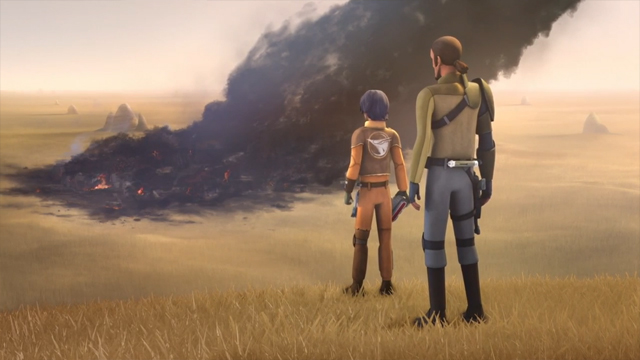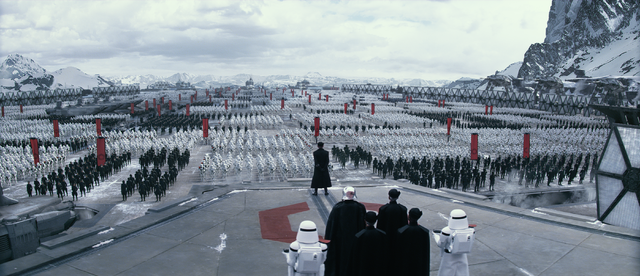
Buried in the Force Friday blitz at the beginning of this month was the first The Force Awakens-related update to StarWars.com’s Databank section. Naturally, very little new information actually came out of the new entries; many didn’t include pictures, and some of the character entries were nothing but the same one-sentence bios from the back of their action figure cards.
One big new piece of info did show up, though—or rather, if you follow the spoiler reporting, a confirmation of one of the oldest rumors: there’s a superweapon on the table.
I actually stopped reading spoilers a long time ago, but even I had heard bits and pieces to this effect; and sure enough, the exceedingly minimal entry for the First Order’s Starkiller Base nevertheless deigns to include the apparent in-universe reasoning for its name:
“An ice planet converted into a stronghold of the First Order and armed with a fiercely destructive new weapon capable of destroying entire star systems.”
While certain reporting (and certain memes) has tended to paint the First Order as an upstart group of ne’er-do-wells rather than a serious galactic power, the ability to destroy an entire star system? Well, that changes the equation. Superweapons have a mixed reputation among Star Wars fans, though; the Expanded Universe is known for adding a whole bunch of ’em to the lineup (including the Sun Crusher, which did exactly what the Starkiller is alleged to do and was totally invulnerable besides), and even many movie purists will tell you that concluding the original trilogy with a second Death Star wasn’t exactly George’s Lucas’s most creative idea. So I put the question to the staff: is this a mistake? A ham-fisted attempt to replicate the feel of the OT? Or are superweapons a crucial part of Star Wars’s magic formula? Read More
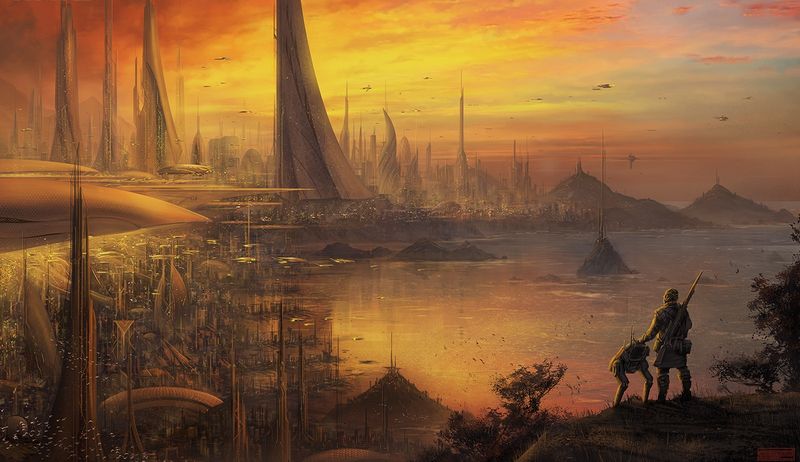
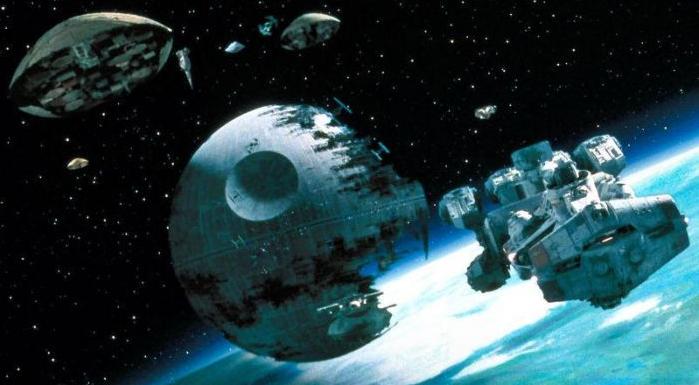
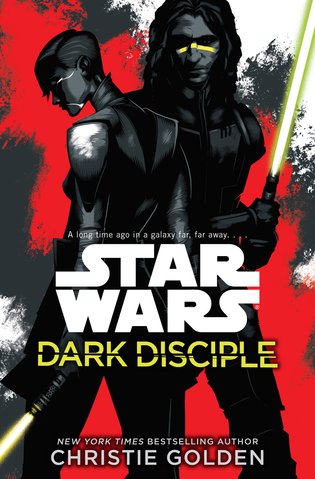 The Clone Wars dominated the landscape of Star Wars media for a good ten years or so, from the release of Attack of the Clones onward. The once-mysterious conflict referred to by Obi-Wan was fleshed out to an almost absurd extent. Once the Disney era of Star Wars publishing began, though, that focus shifted back toward the original trilogy era, leaving fans used to the focus on the prequels feeling left out. Then Dark Disciple was announced, and the combination of author and subject matter made most fans throw up their hands in either jubilation or utter despair. Christie Golden’s only contributions to Star Wars before now were in the Fate of the Jedi series, which has a rather mixed reputation among many readers. Not having read them myself, I sought to go into this book with as open a mind toward Golden as possible, since I try not to assign blame to authors for elements in books that are, often, works by committee to some degree.
The Clone Wars dominated the landscape of Star Wars media for a good ten years or so, from the release of Attack of the Clones onward. The once-mysterious conflict referred to by Obi-Wan was fleshed out to an almost absurd extent. Once the Disney era of Star Wars publishing began, though, that focus shifted back toward the original trilogy era, leaving fans used to the focus on the prequels feeling left out. Then Dark Disciple was announced, and the combination of author and subject matter made most fans throw up their hands in either jubilation or utter despair. Christie Golden’s only contributions to Star Wars before now were in the Fate of the Jedi series, which has a rather mixed reputation among many readers. Not having read them myself, I sought to go into this book with as open a mind toward Golden as possible, since I try not to assign blame to authors for elements in books that are, often, works by committee to some degree.